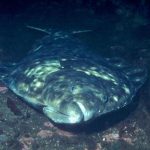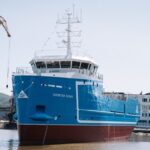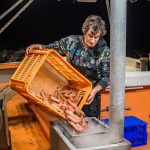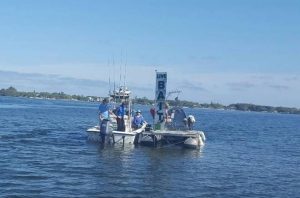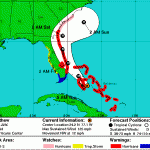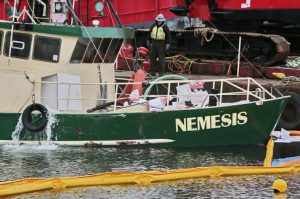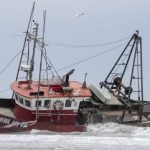Daily Archives: March 9, 2016
Hey, Let’s Use a Helicopter as a Tugboat!
 It’s possible that in 1958, the crew aboard the U.S. Coast Guard buoy tender Juniper were crouching, fearing the thin steel cable pulling them through the water at 15 mph might break, snap back, and, like a scythe, cut them in half. Yet it’s likely they were also gawking at what was providing their forward propulsion. On the other end of the cable, 300 feet ahead and 30 feet up, was a bright yellow Coast Guard helicopter, the bird in Project Tugbird. In November 1951, the Coast Guard began receiving the new Sikorsky HO4S helicopter. Equipped with a winch, a rescue basket, and a roomy passenger compartment, it was ideal for search and rescue. By early 1958, 30 were stationed at U.S. coastal cities. Along the way, someone thought it might be a good idea to use the helicopter for towing vessels—fishing, pleasure, and other types—out of harm’s way. Read the rest here 20:14
It’s possible that in 1958, the crew aboard the U.S. Coast Guard buoy tender Juniper were crouching, fearing the thin steel cable pulling them through the water at 15 mph might break, snap back, and, like a scythe, cut them in half. Yet it’s likely they were also gawking at what was providing their forward propulsion. On the other end of the cable, 300 feet ahead and 30 feet up, was a bright yellow Coast Guard helicopter, the bird in Project Tugbird. In November 1951, the Coast Guard began receiving the new Sikorsky HO4S helicopter. Equipped with a winch, a rescue basket, and a roomy passenger compartment, it was ideal for search and rescue. By early 1958, 30 were stationed at U.S. coastal cities. Along the way, someone thought it might be a good idea to use the helicopter for towing vessels—fishing, pleasure, and other types—out of harm’s way. Read the rest here 20:14
Dept chases away fishermen for using baby trawlers to catch ‘bubuk’
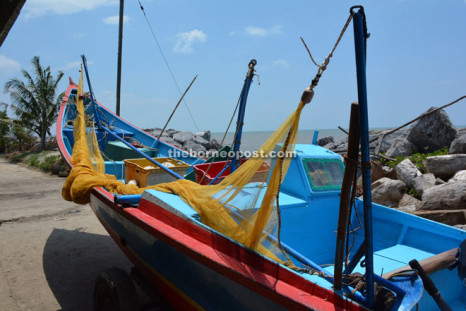 The state Marine Fisheries Department yesterday chased away several fishermen from Pantai Batu Satu for using baby trawlers to catch ‘bubuk’. Sarawak Marine Fisheries Department Region 3 head Buniamin Kiprawi said they were chased away because using baby trawlers to catch ‘bubuk’ is illegal. “They told us that we cannot catch ‘bubuk’ using the net which is tied to our engine boat. If we want, we have to use the traditional way which is just ‘Paka’ (net tied to two wooden rods and manned manually). “Many of us no longer want to use the traditional way of catching Bubuk because it is time and energy consuming, dangerous and the catch is also very little compared to the modern way. Read the rest here 13:51
The state Marine Fisheries Department yesterday chased away several fishermen from Pantai Batu Satu for using baby trawlers to catch ‘bubuk’. Sarawak Marine Fisheries Department Region 3 head Buniamin Kiprawi said they were chased away because using baby trawlers to catch ‘bubuk’ is illegal. “They told us that we cannot catch ‘bubuk’ using the net which is tied to our engine boat. If we want, we have to use the traditional way which is just ‘Paka’ (net tied to two wooden rods and manned manually). “Many of us no longer want to use the traditional way of catching Bubuk because it is time and energy consuming, dangerous and the catch is also very little compared to the modern way. Read the rest here 13:51
Athearn Marine Agency Boat of the Week: 48′ Fiberglass Duffy Lobster, 475HP, 6 Cylinder Detroit 60 Series
 Specifications, information and 19 photo’s click here To see all the boats in this series, Click here 12:37
Specifications, information and 19 photo’s click here To see all the boats in this series, Click here 12:37
Coast Guard rescue’s three fishermen Wednesday after their fishing vessel began taking on water six miles east of Oregon Inlet.
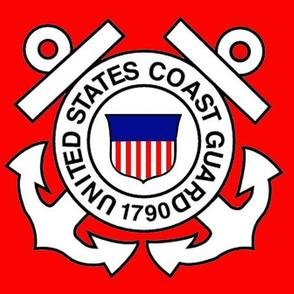 The Coast Guard rescued three people Wednesday after the boat they were on began six miles east of Oregon Inlet. Coast Guard Sector North Carolina watchstanders received notification Tuesday at approximately 11:30 p.m. that a 43-foot commercial fishing vessel, F/V Allison, with three people aboard was taking on water. Coast Guard Station Oregon Inlet launched a 47-foot Motor Lifeboat crew to assist the vessel in distress. The coxswain of the 47-foot MLB made the decision to deploy two crew members and a dewatering pump to assist with dewatering efforts. The name of the vessel, F/V Allison, was confirmed by a Coast Guard representative. Link 12:24
The Coast Guard rescued three people Wednesday after the boat they were on began six miles east of Oregon Inlet. Coast Guard Sector North Carolina watchstanders received notification Tuesday at approximately 11:30 p.m. that a 43-foot commercial fishing vessel, F/V Allison, with three people aboard was taking on water. Coast Guard Station Oregon Inlet launched a 47-foot Motor Lifeboat crew to assist the vessel in distress. The coxswain of the 47-foot MLB made the decision to deploy two crew members and a dewatering pump to assist with dewatering efforts. The name of the vessel, F/V Allison, was confirmed by a Coast Guard representative. Link 12:24
Always Top Quality! Your Seafreeze Ltd. Preferred Price List for March 9th, 2016 Has Arrived!
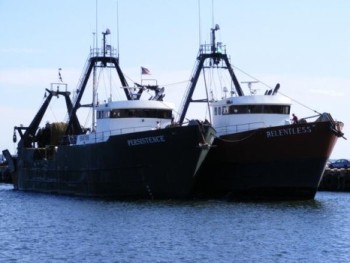 Contact our sales team today @ 401 295 2585 or 800 732 273 Click here for the complete price list from Seafreeze Ltd. We are Direct to the Source-We are Fishermen-We are Seafreeze Ltd! Visit our website! 12:00
Contact our sales team today @ 401 295 2585 or 800 732 273 Click here for the complete price list from Seafreeze Ltd. We are Direct to the Source-We are Fishermen-We are Seafreeze Ltd! Visit our website! 12:00
Billy Frank Jr. Day – Area tribes to honor Billy Frank Jr. with ceremonies, holiday today
Tribes are remembering Billy Frank Jr. today in ceremonies and with holidays to recognize his achievements as an environmental leader and Native American fishing rights activist. Billy Frank Jr. Day recognizes the contributions of Frank, who died May 5, 2014, at age 83. Frank was posthumously given the Presidential Medal of Freedom, the nation’s highest civilian honor. He was presented with many other awards during his career, among them the Martin Luther King Jr. Distinguished Service Award in 1990 and the Albert Schweitzer Prize for Humanitarianism in 1992. The Lower Elwha Klallam tribe and the Quinault tribe will close their tribal offices today for Billy Frank Jr. Day on the anniversary of his birthday. Read the story here 10:39
Warm ocean possible culprit in 2015 Pacific hake collapse – Big bounce-back is expected in 2016
 Warmer ocean water may be to blame for a troubling harvest decline last fall in one of the North Pacific’s most important commercial fisheries, federal scientists report. Pacific hake, also known as whiting, became scarce in Washington and Oregon waters last fall. This winter, they were “much farther offshore than the fish usually occur in summer and fall,” NOAA chief scientist Sandy Parker-Stetter wrote in a February blog. NOAA researchers were as surprised as anyone by the low catches. NOAA survey data from 2015 showed that West Coast hake are doing well, and remain present in large volumes, said Hicks, who serves on the Joint Technical Committee that analyzes hake data. Read the rest here 09:58
Warmer ocean water may be to blame for a troubling harvest decline last fall in one of the North Pacific’s most important commercial fisheries, federal scientists report. Pacific hake, also known as whiting, became scarce in Washington and Oregon waters last fall. This winter, they were “much farther offshore than the fish usually occur in summer and fall,” NOAA chief scientist Sandy Parker-Stetter wrote in a February blog. NOAA researchers were as surprised as anyone by the low catches. NOAA survey data from 2015 showed that West Coast hake are doing well, and remain present in large volumes, said Hicks, who serves on the Joint Technical Committee that analyzes hake data. Read the rest here 09:58
OOPS!! – Pipe breaks on Nova Scotia drilling rig, falls to ocean floor
 Two kilometres of pipe that connects an offshore drilling rig to a wellhead deep under the ocean broke off and sank in a storm off Nova Scotia’s coast Saturday, prompting concerns from an advocacy group over the risks of deepwater accidents caused by harsh ocean conditions. Shell Canada says there was no drilling fluid or hydrocarbons leak because the pipe had already been drained of fluids and a blowout protector remained in place over the well. The Scotian Shelf includes some of the province’s richest fishing grounds for haddock, and a huge spawning area for lobster. Read the rest here 09:20
Two kilometres of pipe that connects an offshore drilling rig to a wellhead deep under the ocean broke off and sank in a storm off Nova Scotia’s coast Saturday, prompting concerns from an advocacy group over the risks of deepwater accidents caused by harsh ocean conditions. Shell Canada says there was no drilling fluid or hydrocarbons leak because the pipe had already been drained of fluids and a blowout protector remained in place over the well. The Scotian Shelf includes some of the province’s richest fishing grounds for haddock, and a huge spawning area for lobster. Read the rest here 09:20
On Ernest Hemingway’s great love: His boat
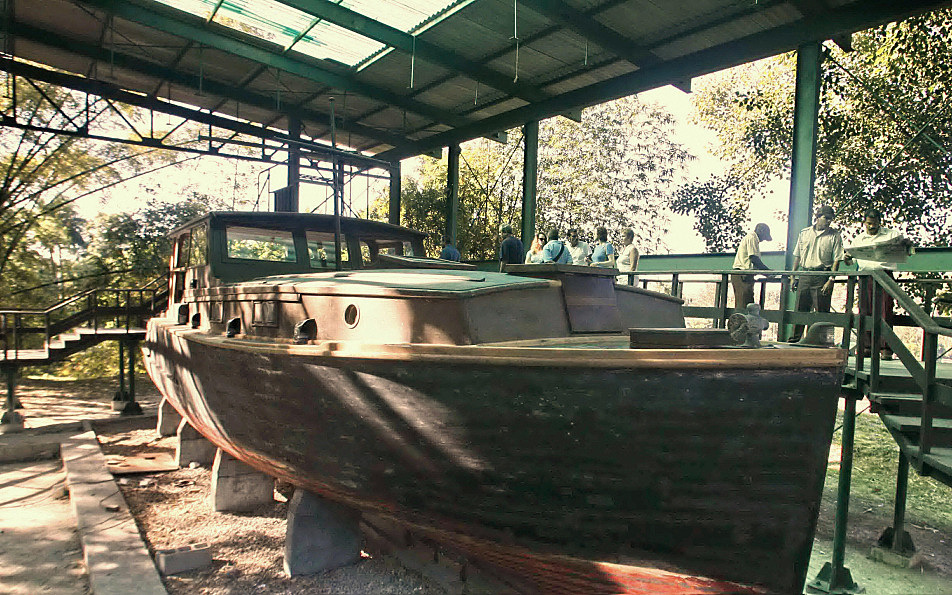 Paul Hendrickson’s new biography of Ernest Hemingway is a story of love and companionship, between Hemingway and Pilar — his boat. “She had been intimately his, and he hers, for 27 years, which were his final 27 years,” Hendrickson writes of Pilar, the fishing vessel Hemingway docked in Cuba. When Hendrickson first saw Pilar, which has outlived Hemingway by more than half a century, the boat was “dying in the sun” at Finca Vigia, Hemingway’s house 12 miles outside Havana. Now, with Cuba’s tourism industry kicking into high gear thanks to the thawing of relations between the island nation and the U.S., the boat has been restored. For the full interview with Paul Hendrickson on “Hemingway’s Boat,” use the audio player above. Click here 08:34
Paul Hendrickson’s new biography of Ernest Hemingway is a story of love and companionship, between Hemingway and Pilar — his boat. “She had been intimately his, and he hers, for 27 years, which were his final 27 years,” Hendrickson writes of Pilar, the fishing vessel Hemingway docked in Cuba. When Hendrickson first saw Pilar, which has outlived Hemingway by more than half a century, the boat was “dying in the sun” at Finca Vigia, Hemingway’s house 12 miles outside Havana. Now, with Cuba’s tourism industry kicking into high gear thanks to the thawing of relations between the island nation and the U.S., the boat has been restored. For the full interview with Paul Hendrickson on “Hemingway’s Boat,” use the audio player above. Click here 08:34
How In Trouble Are Bluefin Tuna, Really? Controversial Study Makes Waves with Enviro’s
 A group of scientists is now making the case that Atlantic bluefin may be more resilient to fishing than commonly thought — and perhaps better able to rebound from the species’ depleted state. But the study is controversial. Several tuna researchers we spoke with warned that the results are preliminary, and it’s much too soon to use them to guide how fisheries are managed. In an email exchange with The Salt, Safina writes, “[T]heir main concern is not recovery, not conservation, but how their findings can allow additional exploitation and more stress to be inflicted on a very beleaguered creature.” Read the article here 08:10
A group of scientists is now making the case that Atlantic bluefin may be more resilient to fishing than commonly thought — and perhaps better able to rebound from the species’ depleted state. But the study is controversial. Several tuna researchers we spoke with warned that the results are preliminary, and it’s much too soon to use them to guide how fisheries are managed. In an email exchange with The Salt, Safina writes, “[T]heir main concern is not recovery, not conservation, but how their findings can allow additional exploitation and more stress to be inflicted on a very beleaguered creature.” Read the article here 08:10


































